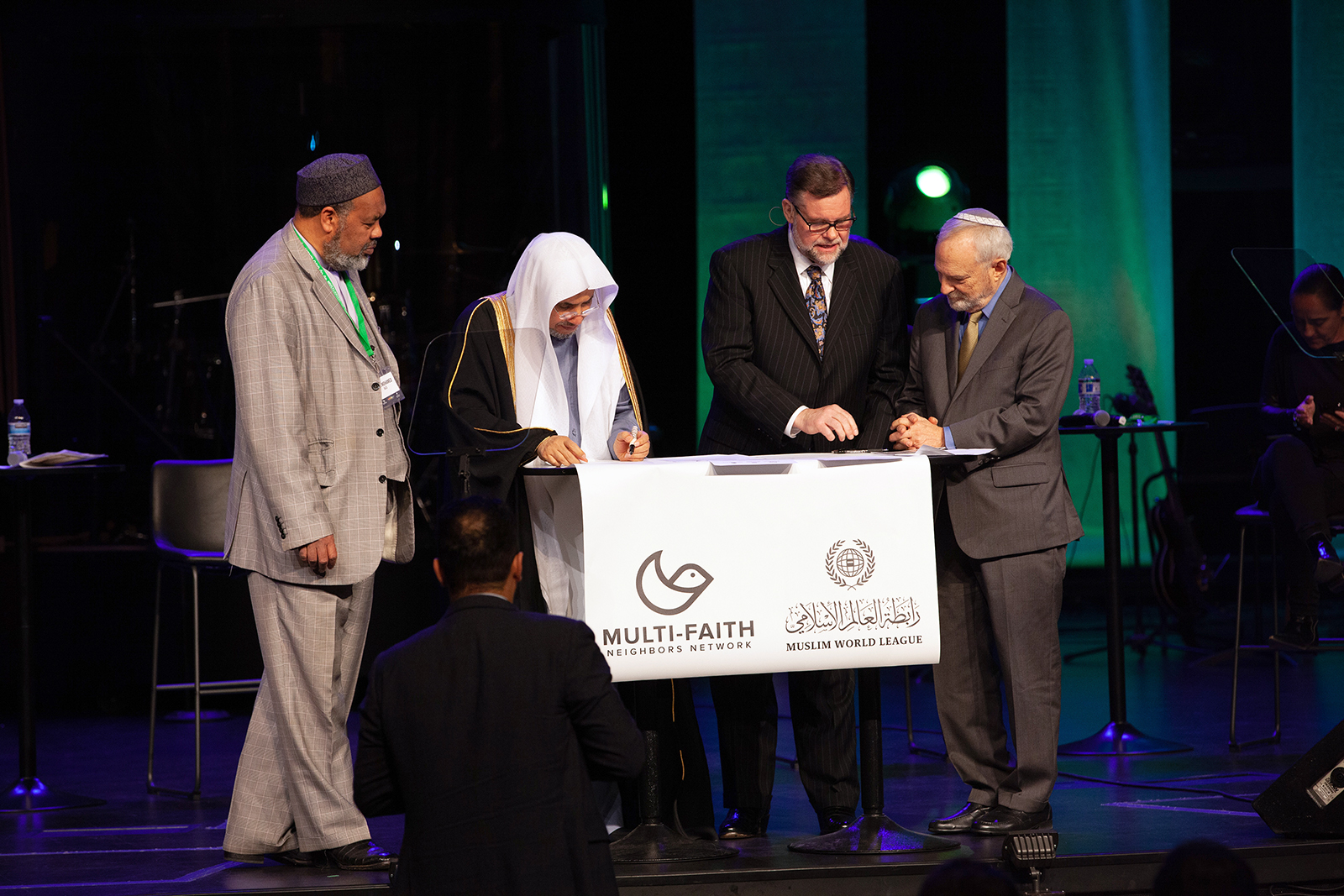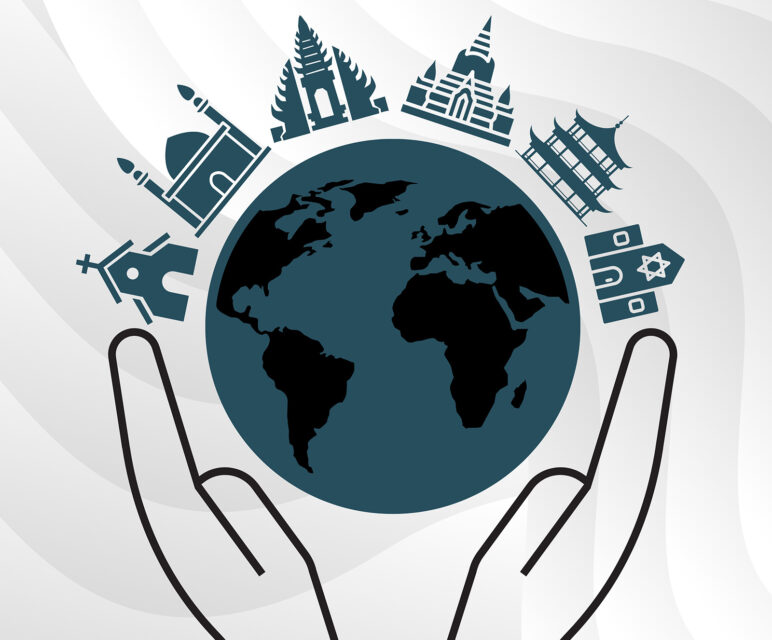(RNS) — The abundant conflicts around the globe are evidence that one of the world’s most pressing needs is developing respect in societies for differing points of views. Think about oppression of the Uyghurs in China and the Rohingya in Burma, long-standing tensions throughout the Mideast and fierce debates within our own country over religious identity.
That’s why we spent the last several months studying and reporting on the conditions that yield greater tolerance of different and even opposing religious views. We did this as part of the George W. Bush Institute’s Pluralism Challenge series, where we explore how diverse identities can coexist in a nation without fear of reprisal.
We found these fundamentals are essential for religious pluralism to develop in a nation as well as in our communities:
Actively listening to those with whom we disagree; presenting and discussing beliefs respectfully; equipping young people with the skills of listening and engaging respectfully; collaborating on common projects; effectively leading fellow believers away from any bigotry; developing relationships, including business ties; and recognizing the citizenship of others.
Fortunately, these elements are being practiced in various ways in numerous places around the world and here in the United States. They offer an antidote to the upheaval we see unfolding in newspaper headlines and on television networks and social media channels.
The Multi-Faith Neighbors Network, a national group of Muslim, Christian and Jewish leaders, describes itself as a collection of “unlikely allies” who meet regularly to explore how followers of the three major Abrahamic faiths can individually and together build peace. Through conferences, retreats, partnering in projects and small group discussions, they seek to understand “the other.”
The participants hear from speakers like Rabbi David Saperstein, a former U.S. ambassador of international religious freedom; Bob Roberts, a Baptist pastor and president of the Institute of Global Engagement; and Mohammad Al-Issa, secretary general of the Muslim World League. Participants also agree to share meals, collaborate on a project, socialize together, stand up for each other in a crisis and recruit other members of their faith to the network.

Imam Mohamed Magid, from left, Mohammad Al-Issa, Pastor Bob Roberts Jr. and Rabbi David Saperstein, all of the Multi-Faith Neighbors Network, at the Global Faith Forum at Northwood Church in Keller, Texas, March 6, 2022. (Photo courtesy of MFNN)
These practices have real-life consequences. When a gunman held hostages inside a Colleyville, Texas, synagogue in January 2022, MFNN members were among the first to rush to offer assistance. As Roberts told us, his friend, Rabbi Charlie Cytron-Walker, was among those held at gunpoint.
Another interfaith effort is Jews and Christians Together in Word and World, started by Jewish lay leaders Sandy and Camille Kress with the journal First Things. The initiative invites scholars of the two faiths to explore how their beliefs affect how they live in the world and relate to each other.
Where we live in North Texas, Friends for Good grew out of the personal friendship among leaders of a Dallas Unitarian Church, an evangelical Christian church, an Islamic association and a Dallas synagogue. In 2015, they decided to expand their circle of religious understanding to their communities. Members of the houses of worship gather quarterly for meals, where directed discussions let neighbors explore and examine their differences. No one tries to eliminate or minimize the distinctions. Rather, they express them while listening to one another.
These examples show us how to “practice pluralism.” And Pew Research Center data shows that we have an opening to strengthen religious pluralism in our communities. Pew reports that a majority of Americans have at least one friend from a different religion.
So, let us individually and collectively find ways to work across religious differences. Serve meals with others at a homeless shelter. Participate in a neighborhood project. Volunteer as a mentor for young people, or deliver food to shut-ins. Without intentional efforts, we will not break down any barriers that keep us from hearing each other. And hearing is the key.
A commitment to pluralism doesn’t require us to give up any beliefs — in fact, it protects our ability to hold and practice those beliefs. It just calls us to actively listen, which involves asking informed questions. True listening, after all, requires curiosity. In the end, that can keep extremists from weaponizing religion.
To be sure, debates over faith are inevitable and even natural. Our beliefs about God and concepts such as love and justice deal with ultimate values. Even stark disagreements are the byproduct of a free society where people are not forced to think or act alike.
But those disagreements can occur without rancor when matched with a deep commitment to pluralism, both within our larger nation and our own religious communities. That’s the encouraging conclusion of our findings.
(Chris Walsh is director of global policy at the George W. Bush Institute. William McKenzie is senior editorial adviser at the Bush Institute. The views expressed in this commentary do not necessarily reflect those of Religion News Service.)





